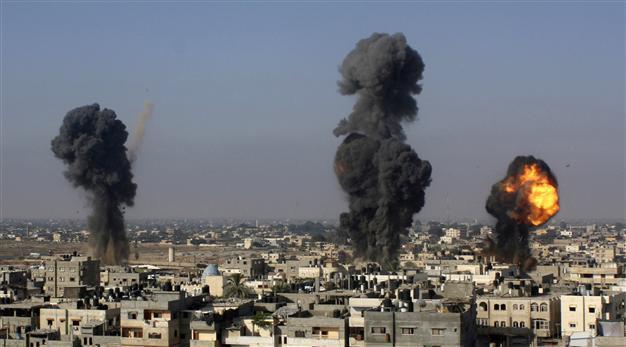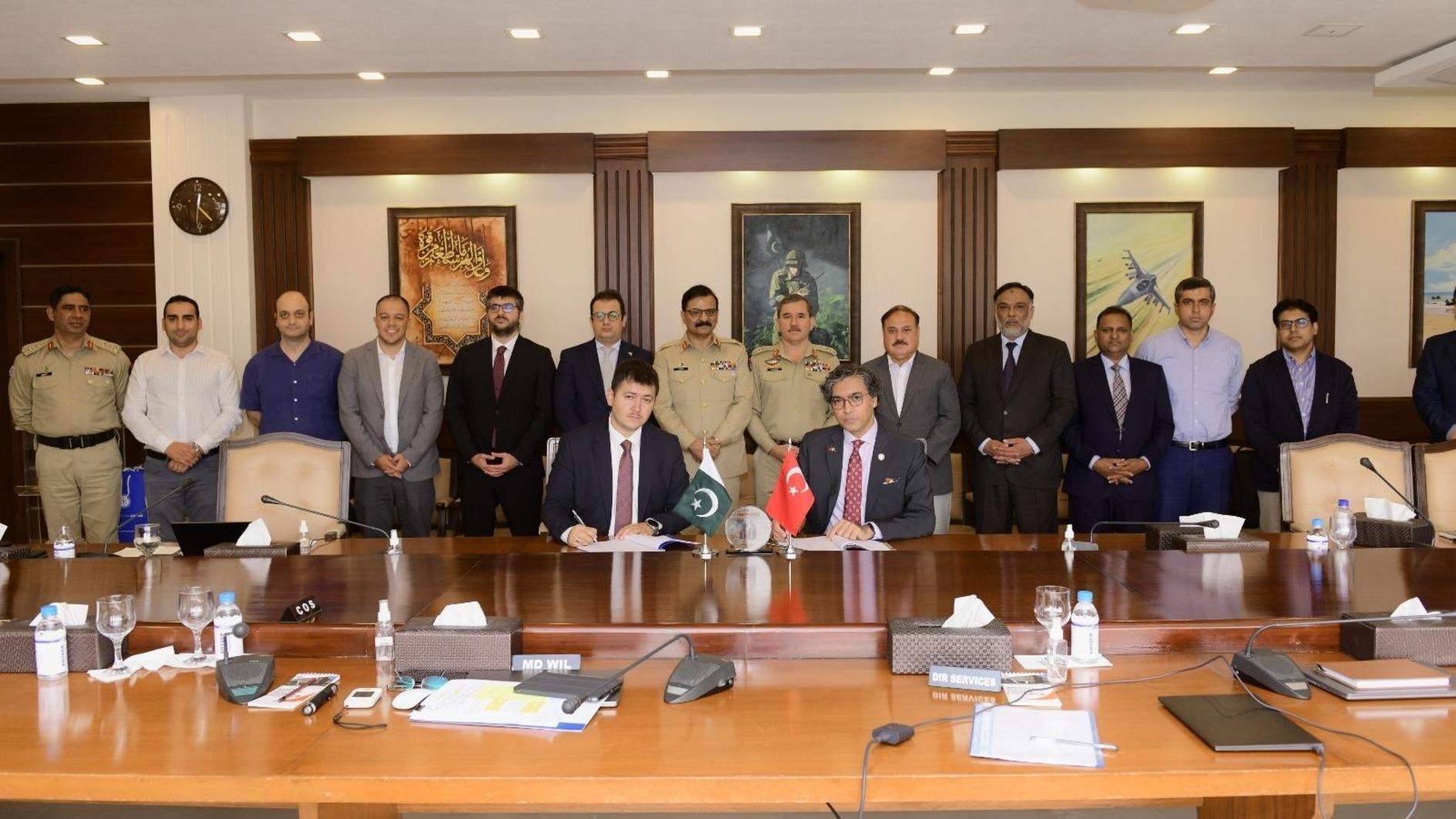Israel holds off on escalating Gaza barrage; West wants truce
GAZA - Reuters

In this file photo taken July 9, 2014, Israeli missiles hit smuggling tunnels between Egypt and the Gaza Strip, in Rafah, southern Gaza Strip. AP Photo
Israel appeared to hold off on a threatened escalation of its week-old Gaza Strip barrage on July 14 despite having balked at Western calls for a ceasefire with an equally defiant Hamas.On Sunday, the Israeli military warned residents of the northern border town of Beit Lahiya to leave or risk their lives when, after nightfall, it planned to intensify air strikes against suspected Palestinian rocket launchers among civilian homes.
A U.N. aid agency said around a quarter of Beit Lahiya's 70,000 residents fled, fearing Israeli attacks which, according to Gaza officials, have killed more than 166 people, most of them non-combatants, since the cross-border shelling war began.
But other than a lone air strike on farmland outside the town, which the Palestinians said caused no casualties, Beit Lahiya was largely quiet in the early hours of Monday. Israel said one rocket was fired from Gaza, without inflicting damage.
Asked about the delay in the Israeli escalation, a military officer declined comment other than to cite "situational assessments" - a term that could potentially refer to the scope of Beit Lahiya's evacuation or broader strategic deliberations.
Israel's Army Radio said there had been "definite signals" that Gaza's dominant Hamas Islamists sought to tamp down the violence, though the report did not elaborate nor cite sources.
U.S. Secretary of State John Kerry, whose bid to broker a wider peace deal collapsed in April when Israeli Prime Minister Benjamin Netanyahu called off negotiations with Western-backed Palestinian President Mahmoud Abbas over his surprise power-share with Hamas, offered on Sunday to help secure a Gaza truce.
The call was echoed by France and by Germany, which will send its foreign minister to the region on Monday. But with the United States and European Union, like Israel, shunning Hamas as a terrorist group, Middle Eastern intermediaries were mooted.
A U.S. official said that Kerry, in a phone conversation with Netanyahu, "described his engagement with leaders in the region to help to stop the rocket fire so calm can be restored and civilian casualties prevented, and underscored the United States' readiness to facilitate a cessation of hostilities, including a return to the November 2012 ceasefire agreement".
That referred to an Egyptian-mediated accord that doused the last big Gaza flare-up. Cairo is now again seeking calm. Hamas, said it also received U.S. overtures through Abbas and Qatar. Turkey has sought to intercede as well, Israeli media said.
Protracted quiet
Netanyahu's spokesman declined to discuss the conversation with Kerry. Another Israeli official played down the truce talk.
"We are not considering this-or-that proposal," the official, who declined to be named, said late on Sunday.
While allowing that a diplomatic solution could eventually be found, the official said Israel would, for now, pursue its military offensive "to restore quiet over a protracted period by inflicting significant damage to Hamas and the other terrorist groups in the Gaza Strip".
Hamas and Islamic Jihad, the second-most potent Gaza faction, made clear they would not accept a mere "calm for calm" where both Palestinian fighters and Israeli forces stand down.
"Netanyahu began this crazy war and he must end his war first," Hamas leader Izzat Al-Reshiq told Al-Arabiya television.
"There can be no ceasefire unless the conditions of the Resistance are met," he added, saying Israel had to stop blockading Gaza and free hundreds of Palestinians it rounded up in the occupied West Bank last month while searching for three Jewish seminary students who it said were kidnapped by Hamas.
Hamas neither confirmed nor denied responsibility. Rocket fire from Gaza increased during the West Bank dragnet. Tensions were further inflamed when the three teens' bodies were discovered, after which suspected Israeli avengers abducted and killed a Palestinian youth from East Jerusalem.
There have been more than 940 rocket launches by Hamas and other factions from Gaza over the past week, Israel says.
It has not suffered fatalities, due in part to the success of its Iron Dome rocket interceptors, but the salvoes have disrupted life in major cities, paralysed vulnerable southern towns and triggered Israeli mobilisation of troops for a possible Gaza invasion if the Palestinian rockets persisted.
The Gaza crisis came as Hamas struggles to parlay the unity deal with Abbas into economic relief for the coastal enclave, whose border with Egypt has been sealed by a Cairo government that deems the Palestinian Islamists a security threat.
Islamic Jihad welcomed Egypt's intercession.
"There can be no settlement or mediation without an esteemed Egyptian role in compelling the (Israeli) enemy to cease fire," the group's leader, Ramadan Shallah, told Al Jazeera. He added that "the battle will not end unless the (Gaza) siege is ended".
The Gaza Health Ministry said at least 166 Palestinians - among them about 138 civilians, including 30 children - have died during six days of warfare, and more than 1,000 wounded.
















